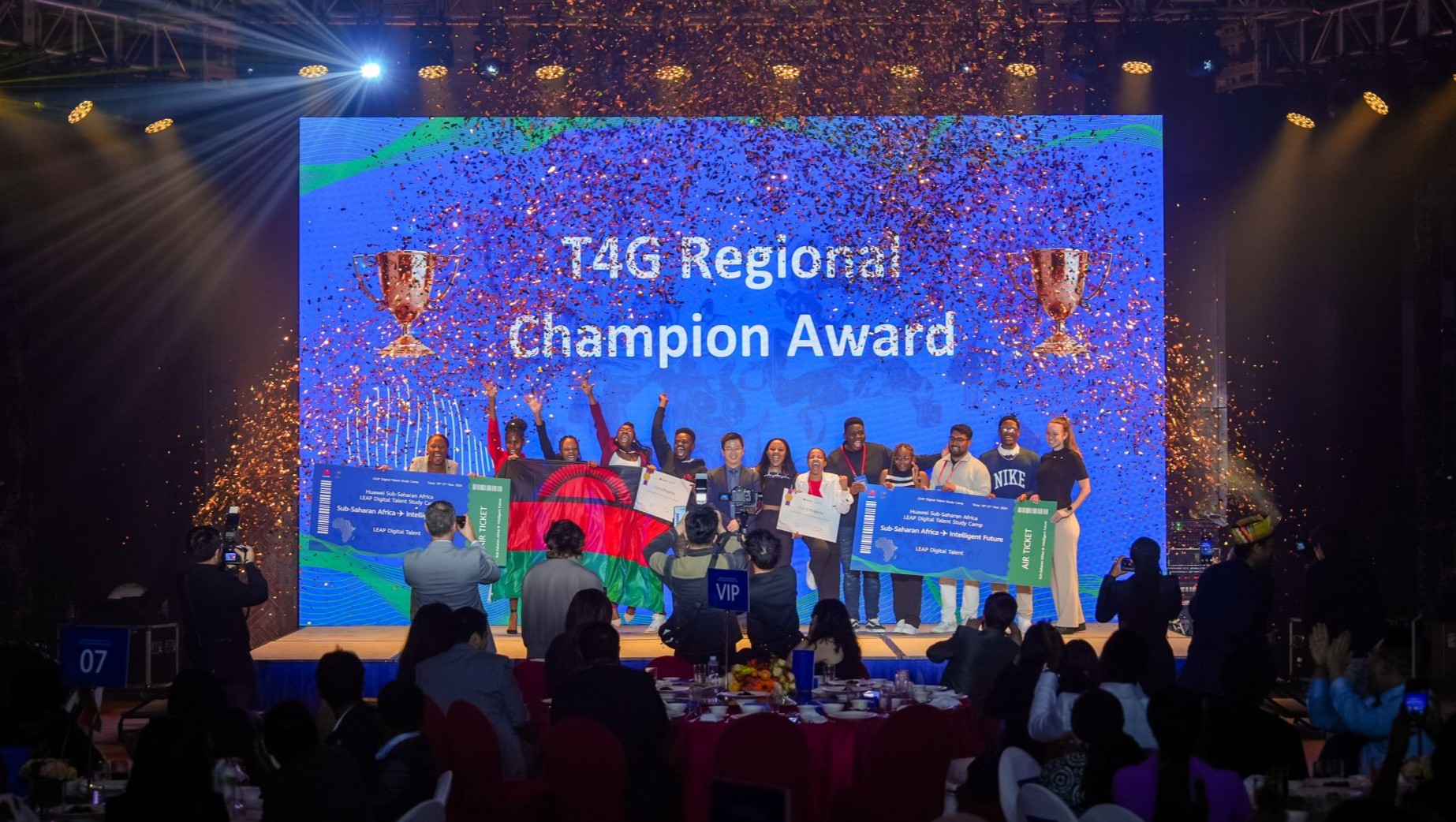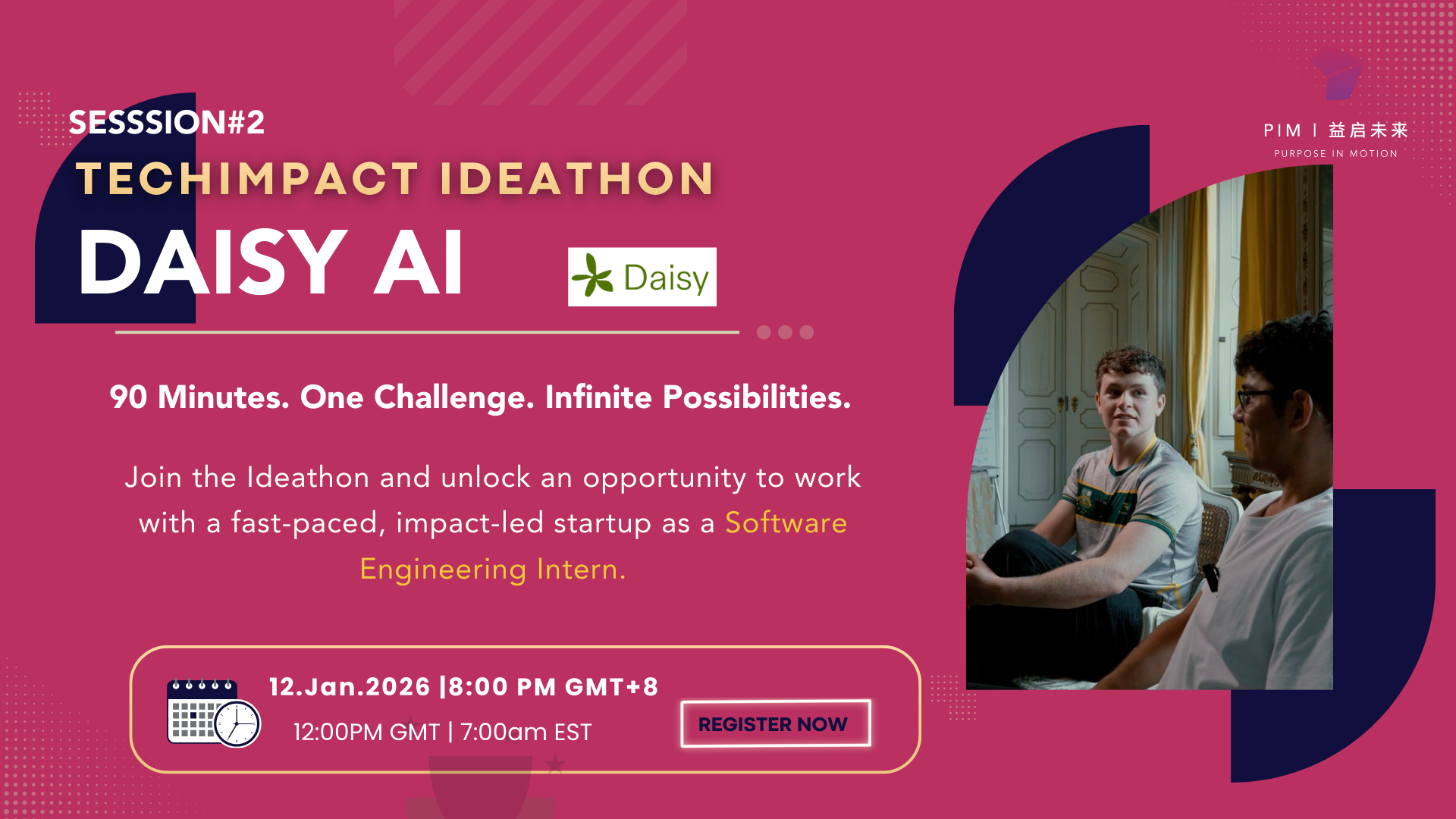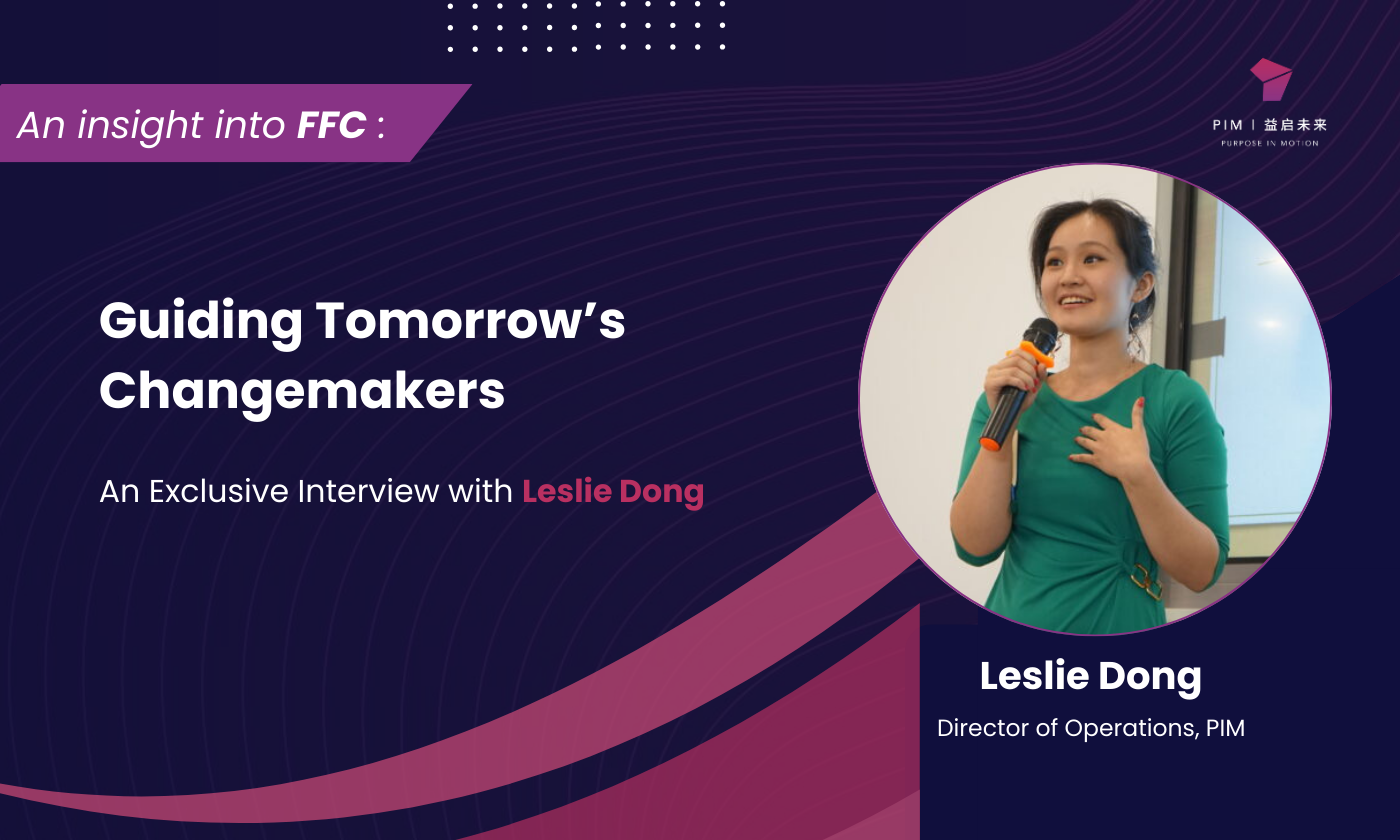Q: What surprised you most about the solutions these young innovators developed to address sustainable development challenges?
A: Empowering Sustainable Innovation Through Mentorship in the Tech4Good Program – As a mentor in the Tech4Good program, I’ve had the privilege of witnessing young innovators transform bold ideas into practical solutions that address pressing global challenges. Among the many inspiring moments, one stands out: a team’s ingenious repurposing of a simple webcam—a piece of everyday technology—into a health diagnostic tool for rural communities. In areas where inadequate infrastructure limits healthcare access, this solution offers a lifeline, enabling early detection and remote consultations. This approach exemplifies the principles of a circular economy, taking an underutilized technology and reimagining it as a valuable resource for those in need. It’s a testament to the power of innovation when driven by a deep understanding of social needs.
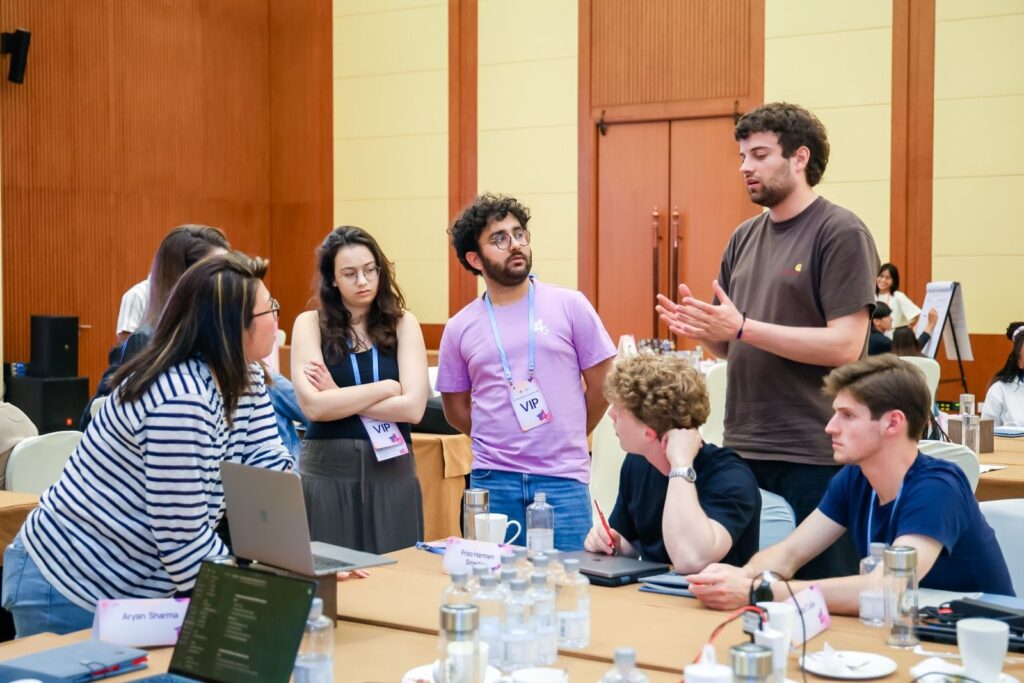
Q: How did you help students navigate the tension between creating technological innovation and ensuring practical implementation?
A: The Heart of Innovation: Solving Real Problems – My journey as an entrepreneur has taught me that technology, no matter how advanced, is only as valuable as its ability to address real-world problems. The allure of cutting-edge tools can be tempting, but true innovation lies in leveraging technology to meet social needs effectively. In my mentoring role, I guide students to prioritize the problem over the technology, ensuring their solutions are practical and impactful. For example, I encouraged one team to focus on the specific healthcare gaps in rural communities rather than chasing complex algorithms. This shift led to their webcam-based diagnostic tool—a solution that is both accessible and scalable, proving that simplicity, when paired with purpose, can drive profound change.
Q: What was your proudest moment as a mentor throughout this year’s Tech4Good program?
A: The Joy of Mentorship: Celebrating Every Step – Mentoring in the Tech4Good program is a journey filled with pride at every turn. Each “a-ha” moment, each breakthrough, and even each mistake represents a step closer to a solution. My proudest moments come from watching teams grow, steadily advancing toward their aspirations through persistence and creativity. One team’s iterative refinement of their diagnostic tool, for instance, transformed initial setbacks into a robust prototype. By embracing challenges as opportunities, these young innovators not only developed innovative solutions but also cultivated resilience—a skill that will serve them far beyond the program.
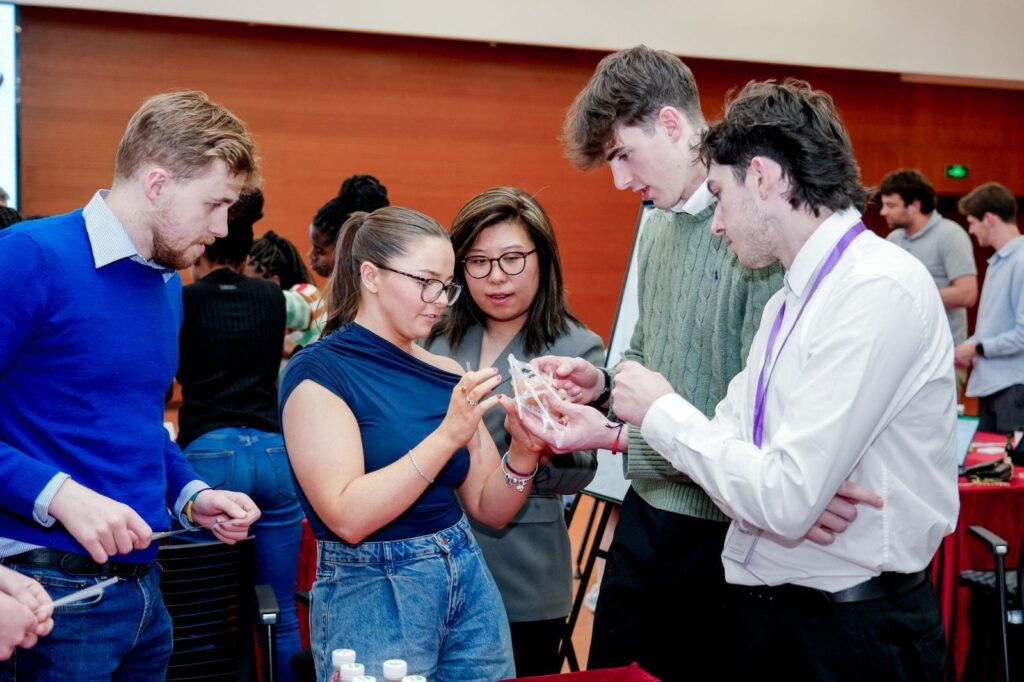
Q: What lesson or insight from your professional experience proved most valuable in your mentoring role?
A: Embracing the Imperfect Journey – One of the most valuable lessons I’ve brought to my mentoring role is that the perfect solution is a myth; innovation is an ongoing process of shaping and refining ideas. The struggles along the way—whether technical hurdles or design flaws—are not failures but stepping stones to something greater. By pitch day, these challenges fade into mere moments, overshadowed by the distinctive character of the solutions they help forge. In the Tech4Good program, I shared this perspective with a team struggling to perfect their health diagnostic tool. By encouraging them to focus on small, manageable iterations, I helped them move past frustration and create a solution that was both practical and aligned with the program’s mission of sustainable innovation for underserved communities. This approach fostered not only better solutions but also a mindset of resilience and adaptability among my mentees.
Q: How do you envision the winning solutions scaling beyond the competition to create real-world impact?
A: Scaling for Impact: A Vision for the Future – Looking ahead, I envision the winning solutions from Tech4Good scaling to create transformative real-world impact. Their strength lies in their innovative yet practical foundations, designed to address global sustainable development challenges. To achieve this, strategic partnerships with local governments, NGOs, and community organizations will be key, enabling solutions to integrate seamlessly into existing frameworks. For instance, the webcam-based health diagnostic tool could scale by connecting with rural telehealth networks, training local leaders to deploy it, and adapting it to regional healthcare needs. By prioritizing affordability, accessibility, and continuous user feedback, these solutions align with circular economy principles, maximizing utility while minimizing waste. This scalable model ensures that innovations evolve to meet diverse community needs, driving sustainable change on a national and potentially global scale. The Tech4Good program is more than a competition; it’s a movement to harness technology for good. As mentors, innovators, and supporters, we have the opportunity to nurture solutions that address the world’s most pressing challenges. I encourage organizations, communities, and individuals to join in scaling these innovations—through partnerships, funding, or advocacy—to create a future where technology serves as a bridge to equity and sustainability. Together, we can turn these inspiring ideas into lasting impact.
Meet Our Mentor

Cristie Zhao
China
Mentor, PIM Tech4Good Program
“One of the most valuable lessons I’ve brought to my mentoring role is that the perfect solution is a myth; innovation is an ongoing process of shaping and refining ideas.”
LinkedIn: https://www.linkedin.com/in/cristiez/
